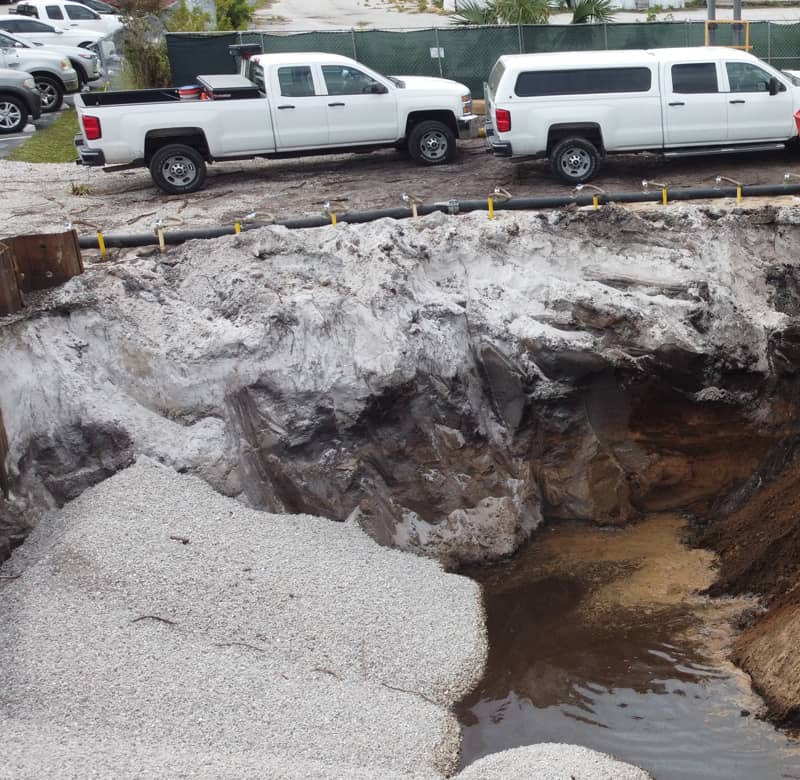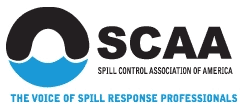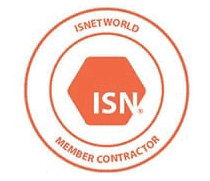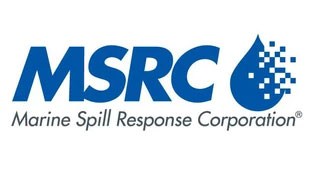When petroleum is stored, used, and/or transported on a piece of land, there is a risk that it can contaminate the soil in that area. Soil that is concentrated with high amounts of petroleum products present various issues when it comes to health, safety, and regulatory compliance. To eliminate these issues, sites with petroleum-contaminated soil may require remediation services to restore the soil to a healthier condition.
What Is Petroleum-Contaminated Soil?
Petroleum-contaminated soil refers to soil that has become contaminated by petroleum products. Even at lower concentrations, pollution from petroleum hydrocarbons negatively affects soil health, harming important soil microorganisms and reducing their number and activity. Because of this, state and federal regulatory agencies have established standards regarding soil contamination to protect the environment and human health.
Common petroleum products often found in contaminated soil include:
- Used oil
- Motor oil
- Jet fuel
- Hydraulic fluid
- Diesel fuel
- Kerosene
- Gasoline
When either of these petroleum products is released at an amount that exceeds state and/or federal regulations, the soil is then considered contaminated. At that point, any responsible parties or landowners are legally required to remediate the soil and restore it to its previously healthy condition.
Remediation of Petroleum-Contaminated Soil
Florida’s Department of Environmental Protection established the Petroleum Restoration Program, which comprises the management, administrative activities, and technical oversight needed to assess and remediate sites contaminated by discharges of petroleum products from stationary storage tanks.
With this program, eligible sites can receive state funding for remediation efforts using qualified contractors like Hull’s Environmental Services. Remediation for voluntary or non-program cleanup sites must be funded by responsible parties.
Some of the most commonly used methods for oil-contaminated soil remediation include:
Dredging/Excavation
This process involves removing contaminated soil and transporting it to a landfill or other facility for appropriate treatment and disposal. The site is then replenished with uncontaminated sand or fill media.
Soil Vapor Extraction/Multi-Phase Extraction
During this process, organic compounds in the soil are volatilized by injecting air into the polluted soil. In doing so, adequate pore space is created within the sediment. Using a vacuum system known as an SVE system, the vapors produced are then extracted from the soil.
Solidification/Stabilization
Solidification and stabilization methods use a reagent to curtail the spread of petroleum contamination in the soil. By injecting a solidifying agent into the contaminated soil, the contaminants become trapped in a solid block. If a stabilization agent is used, it prevents soil contamination from spreading or leaching into groundwater.
Bioremediation
Bioremediation involves fostering the development of microbial processes or introducing microorganisms into the soil to degrade petroleum hydrocarbons and produce non-hazardous byproducts. With this process, you can support the growth of microorganisms that already exist in the soil, which can consume and degrade pollutants to reduce contamination.
How Much Does Petroleum-Contaminated Soil Remediation Cost?
Every soil remediation project has a different price. Some of the factors that will affect the final cost include:
- Land usage
- Topography
- Hydrogeology
- The extent of the contamination
According to the EPA, the average project cost is approximately $197,735. Expect to see costs of up to $15,000 for blending contaminated and clean soil and up to $2,000 per acre-foot for remediating sites with roads and other structures. If treatment is performed with innovative treatment technologies, you can see costs from $50,000 to $100,00 per acre-foot.
Although these costs are pretty high, remediating petroleum-contaminated soil is crucial in preventing long-term, harmful effects on the environment. Taking this step goes a long way toward keeping the planet healthy for future generations.
Get the Soil Remediation That You Need From Hull’s
Remediating petroleum-contaminated soil is crucial in ensuring the health and safety of humans and the environment while maintaining compliance with strict regulatory standards. At Hull’s Environmental Services, we offer quality environmental remediation services aimed at removing contaminants from soil through processes such as bioremediation, soil vapor extraction, excavation, and more. To learn more about our petroleum-contaminated soil remediation capabilities and other services, contact us today











